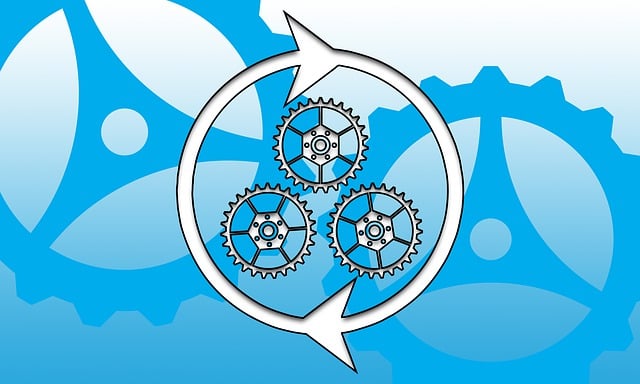Oregon's Department of Social and Human Services (DSHS) enforces support payments, ensuring parents meet their financial obligations toward their children. The process starts with a court order, followed by collaborative planning with parents based on their financial situations. DSHS uses traditional and modern methods to monitor compliance, including wage garnishments and real-time technologies. They work with the Oregon Department of Revenue (ODR) for collection and distribution, emphasizing transparency. Both parents share the legal obligation to support their children, with rights to understand the process, challenge orders, and maintain communication. The state's robust support enforcement system ensures a fair, efficient process, utilizing digital platforms and legal mechanisms to collect unpaid debts. Oregon offers guidance and resources to help individuals enforce support payments legally.
In Oregon, effective enforcement of support payments plays a crucial role in ensuring financial stability for families. This article delves into the intricate workings of Oregon’s support enforcement system, guiding readers through its processes and key players. We explore the step-by-step support payment process, outline legal rights and responsibilities for parents, and highlight unique features of Oregon’s child support enforcement. Additionally, we provide valuable resources for those seeking assistance in navigating this legal landscape to enforce support payments legally and efficiently.
- Understanding Oregon's Support Enforcement Process
- Who Enforces Support Payments in Oregon?
- The Steps Involved in the Support Payment Process
- Legal Rights and Responsibilities for Parents
- Child Support Enforcement in Oregon: Key Features
- Seeking Help: Resources for Support Enforcement
Understanding Oregon's Support Enforcement Process

Oregon’s support enforcement process is designed to ensure that both parents fulfill their financial obligations towards their children. When a court orders support payments, whether it’s child support, spousal support, or both, the state’s Department of Social and Human Services (DSHS) takes on a crucial role in enforcing these payments legally. They employ various methods to track and enforce support payments, including wage garnishment, direct deposit of support into a trust account, and even levying on assets if necessary.
The process begins with the DSHS receiving an order from the court, which specifies the amount and type of support to be paid. From there, they work collaboratively with both parties to establish a payment plan that aligns with each parent’s financial capabilities. Regular updates and adjustments are made as circumstances change, ensuring compliance with legal requirements throughout the support enforcement process.
Who Enforces Support Payments in Oregon?

In Oregon, the enforcement of support payments, whether it’s child support or spousal maintenance, is primarily handled by the Oregon Department of Social and Human Services (DSHS). This state agency plays a crucial role in ensuring that individuals fulfill their financial obligations as ordered by a court. They manage the support payment process, including collecting, tracking, and distributing funds to ensure the well-being of children and affected families.
The DSHS utilizes various methods to enforce support legally. This includes traditional means like wage garnishments, where employers deduct a portion of an individual’s income to cover support payments. They also employ more modern strategies, leveraging technology to monitor compliance in real time. These measures help maintain the integrity of the support system and ensure that children and their guardians receive the financial assistance they are entitled to under the law.
The Steps Involved in the Support Payment Process

The process of enforcing support payments in Oregon involves several steps designed to ensure financial obligations are met for dependents. It begins with a petition or motion filed by either parent, outlining the request for support and the basis for it, such as child support or spousal maintenance. This document is submitted to the court, which reviews it to determine jurisdiction and if all necessary information is included. If the court approves, it issues an order, legally binding both parties to the agreed-upon support payments.
Next, the Oregon Department of Revenue (ODR) plays a crucial role in the support enforcement process. They are responsible for collecting and distributing support payments. Once the order is in place, the ODR serves notice on the non-paying parent, informing them of their obligation and potential consequences if payments aren’t made. Payments can be made directly to the ODR or through a third-party vendor, ensuring tracking and record-keeping for both parties’ reference. Regular communication between the ODR, paying parent, and recipient is vital to maintaining an accurate record of payments and addressing any issues promptly.
Legal Rights and Responsibilities for Parents

In Oregon, both parents have a legal responsibility to provide financial support for their children. This includes contributing to the cost of their care, well-being, and education. The state has established a robust support enforcement system to ensure that children receive the financial support they need from both parents, even if one parent is unwilling or unable to pay. When it comes to enforcing support payments, Oregon utilizes a combination of legal processes, including court orders, wage garnishment, and other collection methods, to secure compliance.
Parents in Oregon have specific legal rights and responsibilities regarding child support. They are entitled to be informed about the support payment process, receive clear instructions on how to make payments, and have the right to challenge or modify support orders under certain circumstances. At the same time, parents are obligated to provide accurate financial information, adhere to the established support plan, and maintain open communication with the other parent and the Oregon Child Support Division to address any issues related to support enforcement. Understanding these rights and responsibilities is crucial for both parents to ensure a fair and effective support payment process.
Child Support Enforcement in Oregon: Key Features

In Oregon, the enforcement of child support payments is a well-structured process designed to ensure financial stability for children after a separation or divorce. The state’s Department of Human Services (DHS) plays a pivotal role in administering and enforcing support obligations, ensuring that non-custodial parents fulfill their responsibilities. Key features of Oregon’s support enforcement system include automated systems for tracking payments, robust legal mechanisms to collect unpaid debts, and collaborative efforts between various agencies to serve families effectively.
The support payment process in Oregon is streamlined through digital platforms, enabling both parents to manage obligations conveniently. Legal support enforcement actions are taken when payments fall into arrears, with options ranging from wage garnishments to bank account levies. These measures are implemented fairly and transparently, reflecting the state’s commitment to upholding parental responsibilities while also prioritizing the best interests of the child.
Seeking Help: Resources for Support Enforcement

Seeking Help: Resources for Support Enforcement in Oregon
If you’re facing challenges in enforcing support payments or need assistance with the support payment process, Oregon offers several resources to navigate this legal aspect. The state’s support enforcement agencies play a crucial role in ensuring that both parents fulfill their financial obligations towards their children. These agencies employ various methods, including legal support enforcement, to encourage compliance with court-ordered support agreements.
For Oregon residents, the Department of Human Services (DHS) provides comprehensive services related to child support and other family assistance programs. They offer guidance on how to enforce support payments legally, helping individuals understand their rights and options. Additionally, there are private organizations and legal aid societies specializing in family law that can provide pro bono or low-cost assistance, ensuring access to justice for all.






